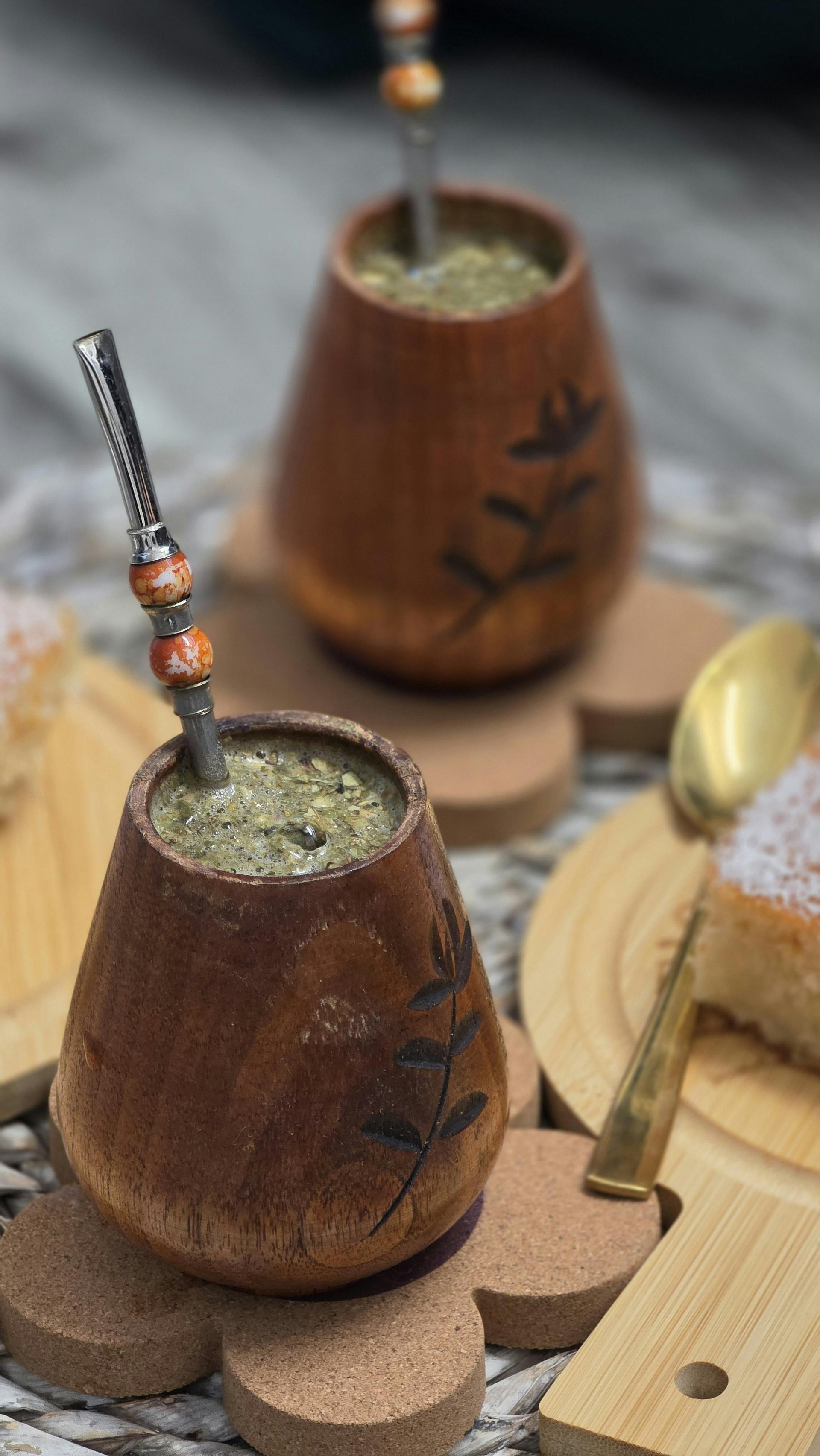Yerba Mate (yer-bah mah-tay) is made from the leaves of the Holly Tree found in the South American rainforest. Just like mint, chamomile and rooibos, yerba mate does not derive from the Camellia Sinensis plant so it is not called a tea, rather it is a tisane. Unlike other tisanes found in the shop, yerba mate is naturally caffeinated carrying as much caffeine as coffee does without its common jitters or the acidic taste.
Chemical Components
The plant contains numerous vitamins and minerals including, Vitamins A, C, E, B1, B2, Niacin, B5, B Complex, Calcium, Manganese, Iron, Selenium, Potassium, Magnesium, Phosphorus, Zinc, 15 Amino Acids among many others. The Pasteur Institute and the Paris Scientific society in 1964 were interested in the plants health benefits and did a complete study. The investigators concluded “it is difficult to find a plant in any area of the world equal to mate in nutritional value” and that yerba mate contains “practically all of the vitamins necessary to sustain life.”
Close Cousins
Another caffeinated tisane that derives from another Holly Tree is called guayusa (gwhy-you-suh). Like its yerba mate cousin, this tisane contains many health benefits. Guayusa contains, vitamins C and D, potassium, magnesium, calcium, zinc, and all 15 essential amino acids. Full of antioxidants, guayusa has even more than antioxidant rich green tea. Commonly found in energy drinks, guayusa is a great source for a caffeine fix. Yaupon is a holly plant that was steeped in hot water and enjoyed by the Native Americans.
These tisanes are grown in similar conditions. They are cultivated under the shade of taller trees to protect their leaves from direct sunlight, meaning more trees in the rainforest. Legends and ceremonies surround these unique tisanes, which will be explored in Yerba Mate Part II.

